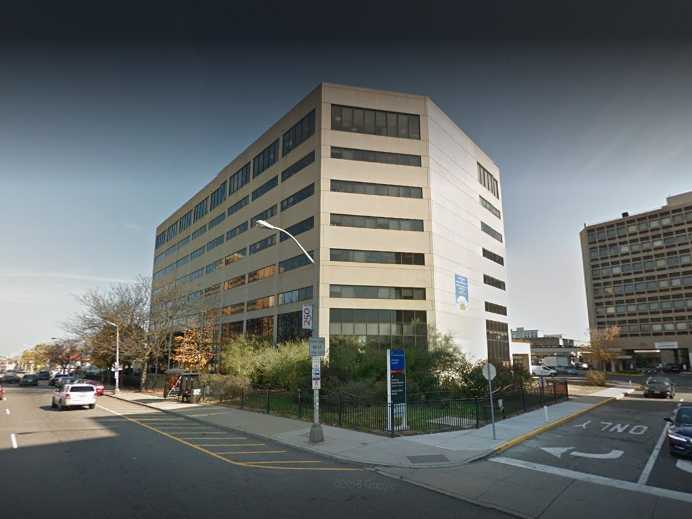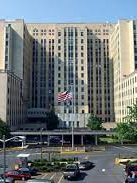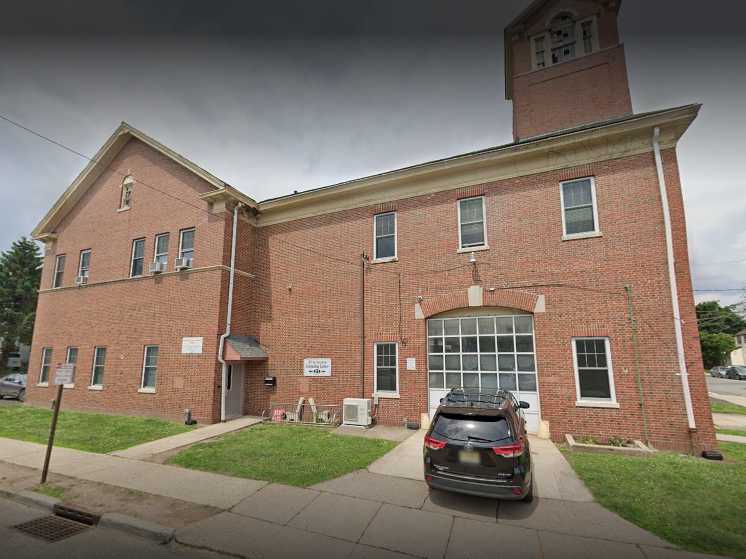University Hospital

Contact Details
-
Name:University Hospital
-
Address:150 Bergen Street
Newark, NJ - 07103 -
Phone:973-972-7722
-
Email:
-
Instagram:
-
Website:
Description
There are currently state and federally funded or sponsored drug and alcohol treatment centers in the state of New Jersey
Questions & Answers
Help others like you find out more about University Hospital. Do you know the answers to any of these questions? Contribute now and help others like you.
What kinds of care do they offer?
-
Mental health treatment
Includes interventions such as therapy or psychotropic medication that treat a person's mental health problem or condition, reduce symptoms, and improve behavioral functioning and outcomes.
-
Substance use treatment
Refers to a broad range of activities or services, including identification of the problem (and engaging the individual in treatment); brief interventions; assessment of substance abuse and related problems including histories of various types of abuse; diagnosis of the problem(s); and treatment planning, including counseling, medical services, psychiatric services, psychological services, social services and follow-up for persons with alcohol or other drug problems (Institute of Medicine, 1990).
-
Treatment for co-occurring substance use plus either serious mental health illness in adults/serious emotional disturbance in children
Housing for individuals recovering from substance abuse that is designed to provide a drug and alcohol-free living environment and appropriate support services to facilitate movement to independent living. Such housing includes transitional living, sober houses, sober living, recovery houses, and 3/4 houses.
What types of treatment approaches do they offer?
-
Individual psychotherapy
Focuses on a patient's current life and relationships within the family, social, and work environments through one-on-one conversations with a therapist. The goal is to identify and resolve problems with insight, as well as build on strengths.
-
Couples/family therapy
Are two similar approaches that use discussions and problem-solving sessions facilitated by a therapist to help couples and family members improve their understanding of and the way they respond to one another. This type of therapy can resolve patterns of behavior that might lead to more severe mental illness. Family therapy can help educate about the nature of mental disorders and teach skills to better cope with the effects of having a family member with a mental illness, such as how to deal with feelings of anger or guilt.
-
Group therapy
Involves groups of usually 4 to 12 people who have similar problems and who meet regularly with a therapist. The therapist uses the emotional interactions of the group's members to (1) help them get relief from distress and (2) possibly modify their behavior.
-
Integrated Mental and Substance Use Disorder treatment
Provides combined treatment for mental illness and substance abuse from the same clinician or treatment team. Effective integrated treatment programs view recovery as a long-term, community-based process. The approach employs counseling designed especially for those with co-occurring disorders.
-
Activity therapy
Includes art, dance, music, recreational and occupational therapies, and psychodrama.
-
Electroconvulsive therapy
Also known as ECT, uses low-voltage electrical stimulation of the brain to treat some forms of major depression, acute mania, and some forms of schizophrenia. This potentially life-saving technique is considered only when other therapies have failed, when a person is seriously medically ill and/or unable to take medication, or when a person is very likely to commit suicide. Substantial improvements in the equipment, dosing guidelines, and anesthesia have significantly reduced the side effects.
-
Telemedicine/telehealth therapy
The ability for healthcare providers, working from a distance using telecommunications technology, to communicate with patients, diagnose conditions, provide treatment, and discuss healthcare issues with other providers to ensure quality healthcare services are provided. Other names used for this treatment approach are: e-medicine, e-therapy, e-psychiatry, and telepsychiatry.
-
Smoking not permitted
Smoking is not allowed.
What type of setting is this location?
-
Hospital inpatient/24-hour hospital inpatient
Medical treatment that is provided in a hospital or other facility and requires at least one overnight stay.
Who is responsible for the operation of this facility?
-
State government
Government of a country subdivision in a federal form of government, which shares political power with the federal or national government and must meet certain standards set by the federal government, but are free to expand beyond what exists at the federal level and improve services, access, and protections for consumers, such as mental health and substance abuse services, in that state.
What types of payment or funding do they accept?
-
Cash or self-payment
Payment for treatment is made by the person directly, through cash or other means, rather than using health insurance.
-
Medicaid
A joint federal and state program that helps with medical costs for some people with low incomes and limited resources. Medicaid programs vary from state to state.
-
Medicare
The federal health insurance program for people age 65 and older and people with disabilities.
-
State-financed health insurance plan other than Medicaid
-
Private health insurance
-
Federal military insurance (e.g., TRICARE)
-
State mental health agency (or equivalent) funds
Funds designed to finance the cost of treatment for mental health conditions.
-
State welfare or child and family services funds
-
State corrections or juvenile justice funds
-
State education agency funds
-
Other State funds
-
County or local government funds
-
Community Service Block Grants
Provides funds to alleviate the causes and conditions of poverty in communities.
-
Community Mental Health Block Grants
Through individual block grant contracts with community mental health services programs, these resources are focused on development and maintenance of community based services.
-
U.S. Department of VA funds
-
IHS/Tribal/Urban (ITU) funds
Direct funds from the Indian Health Service. They consist of tribal funds through "638 contracts" (named after the public law under which they were authorized) and/or urban funds through federal Title 5 grants. These funds are considered part of the India health care system and can be used for programs that provide behavioral health services as well as for programs that provide other health-related services.
-
Federal Grants
A Federal Grant is funding given to wither the Department of Health and Human Services (HHS), the Office of National Drug Control Policy (ONDCP), or the Department of Justice (DOJ) for programs that treat substance abuse
-
Private or Community foundation
Do they offer any emergency mental health services?
-
Psychiatric emergency walk-in services
Designed to provide accessible, professional, cost-effective services to individuals in psychiatric crisis, and strive to stabilize consumers on site and avoid psychiatric hospitalization whenever possible.
-
Psychiatric emergency onsite services
A self-initiated community partnership between local law enforcement, county health services, mental health advocates, and mental health consumers. It is designed to address the needs of mental health consumers who enter the judicial system during a crisis state.
What language services are offered?
-
Sign language services for the deaf and hard of hearing
Service provided for persons who are deaf and hard of hearing.
-
Spanish
Staff counselors provide treatment in Spanish.
-
Other languages (excluding Spanish)
What specific groups are treated here?
-
Clients with co-occurring mental and substance use disorders
Facility has a program or group specifically tailored for persons with co-occurring mental and substance abuse disorders.
-
Lesbian, gay, bisexual, transgender, or queer/questioning (LGBTQ)
Facility has a program or group specifically tailored for LGBT clients.
-
Veterans
Facility has a program or group specifically tailored for Veterans.
-
Active duty military
Facility has a program or group specifically tailored for active duty military persons.
-
Members of military families
Facility has a program or group specifically tailored for Military families.
-
Criminal justice (other than DUI/DWI)/Forensic clients
Facility has a program or group specifically tailored for clients referred from the court/judicial system.
-
Seniors or older adults
Facility has a program or group specifically tailored for Seniors or older adults.
-
Clients with HIV or AIDS
Facility has a program or group specifically tailored for persons with HIV or AIDS.
-
Clients who have experienced trauma
Facility has a program or group specifically tailored for persons who have experienced trauma.
-
Clients who have experienced intimate partner violence, domestic violence
Facility has a program or group specifically tailored for persons who have experienced intimate partner violence, domestic violence.
-
Persons 18 and older with serious mental illness (SMI)
Facility has a program or group specifically tailored for persons with serious mental illness.
-
Persons with Alzheimer's or dementia
Facility has a program or group specifically tailored for persons with Alzheimer's or dementia.
-
Persons with post-traumatic stress disorder (PTSD)
Facility has a program or group specifically tailored for persons with post-traumatic stress disorder.
-
Persons with traumatic brain injury (TBI)
Facility has a program or group specifically tailored for persons with traumatic brain injury.
-
Young adults
Facility has a program or group specifically tailored for Transitional age young adults.
-
Persons with eating disorders
Facility has a program or group specifically tailored for persons with eating disorders.
-
Persons experiencing first-episode psychosis
Facility has a program or group specifically tailored for persons with eating disorders.
What ancillary services are offered at this facility?
-
Case management service
Helps people arrange for appropriate services and supports through a case manager who monitors the needs of clients/patients and their families and coordinates services, such as mental health, social work, health, educational, vocational, recreational, transportation, advocacy, and respite care, as needed.
-
Chronic disease/illness management
A systematic approach to improving health care for people with chronic disease. Central to most CDM approaches are patient self-management, physician education, and organizational support. Among the variety of strategies employed are case management, continuous quality improvement, disease management (DM) and the chronic care model (CCM).
-
Education services
Locate or provide educational services from basic literacy through a general equivalency diploma and college courses including special education at the pre-primary, primary, secondary, and adult levels.
-
Family psychoeducation
Helps consumers and their families and supporters, through relationship building, education, collaboration, and problem solving to: 1) learn about mental illness; 2) master new ways of managing their mental illness; 3) reduce tension and stress within the family; 4) provide social support and encouragement to each other; 5) focus on the future; and 6) find ways for families and supporters to help consumers in their recovery.
-
Illness management and recovery
Uses a standardized individual or group format based on five evidence-based practices: 1) Psychoeducation, 2) Behavioral tailoring, 3) Relapse prevention training, 4) Coping skills training, and 5) Social skills training.
-
Psychosocial rehabilitation services
Offered individually or in groups, provide therapeutic or intervention services such as daily and community-living skills, self-care and skills training (grooming, bodily care, feeding, social skills training, and basic language skills).
-
Suicide prevention services
Include identifying risk factors; educating staff on identifying the signs of suicidal behavior and using methods to detect risk; and the assessment, intervention, and management of suicidal patients including treatment of an underlying mental or substance use disorder, and use of psychotropic medication, supportive services, and education. Hotlines help individuals to contact the nearest suicide prevention mental health provider.
What types of recovery support services are offered here?
-
Mentoring/peer support
What specific pharmacotherapy treatments do they provide?
-
Nicotine replacement
Administers nicotine to the body by means other than tobacco, without other harmful chemicals found in tobacco. Common forms of nicotine replacement therapy are nicotine patches, nicotine gum or lozenges, nasal spray and inhaler. The goal of nicotine replacement is to prevent cravings in a tobacco user, allowing the person to abstain from tobacco.
-
Chlorpromazine
Chlorpromazine is used to treat the symptoms of schizophrenia and to treat the symptoms of mania in people who have bipolar disorder. It helps you to think more clearly, feel less nervous, and take part in everyday life. It can reduce aggressive behavior and the desire to hurt yourself/others. It works by helping to restore the balance of certain natural substances in the brain.
-
Haloperidol
Haloperidol is used to treat psychotic disorders and is also used to control motor tics and verbal tics in adults and children who have Tourette's disorder. Haloperidol is also used to treat severe behavioral problems such as explosive, aggressive behavior or hyperactivity in children who cannot be treated with psychotherapy or with other medications. Haloperidol is in a group of medications called conventional antipsychotics. It works by decreasing abnormal excitement in the brain.
-
Aripiprazole
-
Clozapine
-
Lurasidone
-
Olanzapine
-
Paliperidone
-
Quetiapine
-
Risperidone
-
Ziprasidone
-
Antipsychotics used in treatment of SMI
A multi-disciplinary clinical team approach, helps those with serious mental illness live in the community by providing 24-hour intensive community services in the individual's natural setting.
What types of screening and assessment methods are used here?
-
Screening for tobacco use
Determines a client's use of tobacco products, such as cigarettes, cigars, pipe tobacco, or smokeless tobacco. It is generally recommended that providers screen for tobacco use on a regular basis by asking clients, as they are seen, about their current and past use of tobacco products and their exposure to secondhand smoke or tobacco.
What kinds of education and counseling services are offered here?
-
Smoking/vaping/tobacco cessation counseling
Includes interventions for persons who use tobacco and want help with stopping, including behavioral support or counseling in groups or individually.
What age groups are accepted here?
-
Young Adults
Facility accepts young adults (13-25) for treatment.
-
Adults
Facility accepts adults (26-64) for treatment.
-
Seniors
Facility accepts seniors (65 or older) for treatment.
What types of testing do they offer?
-
HIV testing
Determines whether you are infected with HIV, a virus that weakens the immune system and can lead to acquired immunodeficiency syndrome.
-
STD testing
Testing to determine the type of sexually transmitted disease a person may be carrying.
-
TB screening
Skin tests that are used to screen people who are at high risk for TB exposure such as people with diseases or conditions that weaken their immune system.
What types of license or certifications or accreditation does this facility posses?
-
Federally Qualified Health Center
An entity may qualify as a FQHC if it meets one of these requirements (CMS, 2017): Is receiving a grant under Section 330 of the Public Health Service (PHS) Act or is receiving funding from such a grant and meets other requirements; Is not receiving a grant under Section 330 of the PHS Act, but is determined by the Secretary of the Department of Health and Human Services (HHS) to meet the requirements for receiving such a grant (i.e., qualifies as a FQHC "look-alike") based on the recommendation of the Health Resources and Services Administration (HRSA); Was treated by the Secretary of the Department of HHS for purposes of Medicare Part B as a comprehensive Federally-funded health center as of January 1, 1990; Is operating as an outpatient health program or facility of a tribe or tribal organization under the Indian Self-Determination Act or as an urban Indian organization receiving funds under Title V of the Indian Health Care Improvement Act as of October 1, 1991.
What type of facility is this?
-
Separate inpatient psychiatric unit of a general hospital
Is vaping allowed at this facility?
-
Vaping not permitted
What languages do they speak at this facility?
-
Creole
Staff counselors provide treatment in Creole.
-
French
Staff counselors provide treatment in French.
-
Portuguese
Staff counselors provide treatment in Portuguese.
How do I apply for admission at this location?
Have you been to this facility? What was your experience?
Is there a wait-list for treatment center?
Is any payment required?
Related Posts
VA NJ Healthcare System
- East Orange, NJ
- 2.48 miles away
Irvington Counseling Center
- Irvington, NJ
- 3.00 miles away


